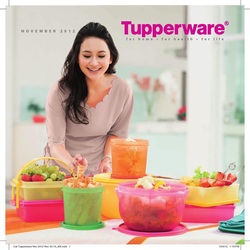
Tupperware, the American seller of plastic items, has a business model perfectly tailored to meet the challenges here. It uses a sales force mostly of homemakers to store and deliver products. Tupperware avoids the poor roads and scarce shelf space which hinders many retailers here.
Tupperware's sales force has exploded to >170,000 people here from only 2,000 a decade ago. It uses its direct-sales network avoid a complicated supply chain and store infrastructure. "Many foreign retailers blame overburdened roads and a lack of retail space on the country's 17,000 islands for slowing expansion here. But Tupperware's representatives sell to friends and family in their homes and pick up Cake Takers and ravioli makers themselves at the company's warehouses."
Tupperware points out, "There is a limited retail infrastructure once you get away from major metropolitan areas,but our salespeople take our products to the villages in scooters and on buses."
Tupperware's network is also an asset it can leverage and charge other marketers which complement Tupperware for access to. Think products which will drive the use and need for Tupperware's products. Food and beverage companies are a strong complement. Banking and insurance products, while not a complement, are not a competitor to Tupperware and could leverage Tupperware's network.
When planning on entering any market, emerging or not, it is important you align your distribution with the realities of that market's limitations.
Source:
"Indonesia Provides a Tasty Dish for Tupperware", Wall Street Journal, April 24, 2013.
http://online.wsj.com/article/SB10001424127887323551004578440513921118512.html?mod=%253C%2525mst.param%2528LINKMODPREFIX%2529
CKB Solutions is all about real solutions for the real world. To learn how we can help your business, contact Greg Kovacic in Hong Kong.


 RSS Feed
RSS Feed
